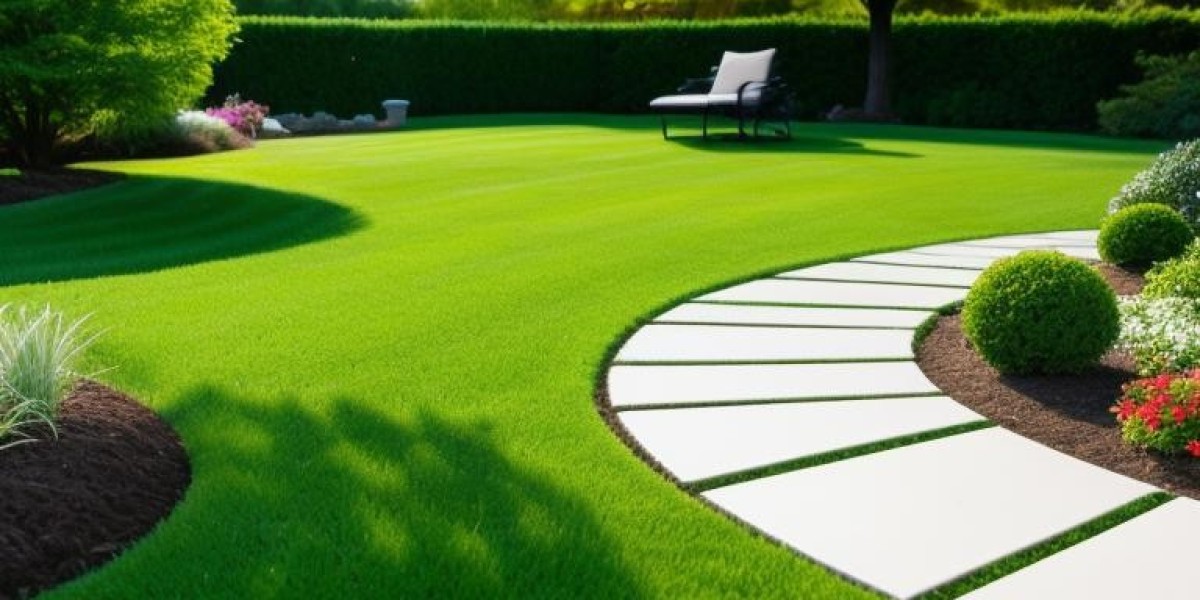Maintaining a lush, green lawn in East Atlanta can be challenging due to the region's unique climate and soil conditions. Whether you're a homeowner or manage a commercial property, having a well-maintained lawn enhances the aesthetic appeal of your space, increases p roperty value, and creates a welcoming environment. This comprehensive guide will delve into the essential aspects of lawn care in East Atlanta, providing valuable tips and insights to help you achieve and maintain a beautiful lawn.
Understanding East Atlanta's Climate and Soil
East Atlanta's climate features hot summers, mild winters, and abundant rainfall, creating an ideal environment for various types of grasses. However, this climate also presents challenges, such as potential drought conditions and high humidity, which can lead to fungal diseases and pest infestations. The soil in East Atlanta ranges from sandy loam to clay, affecting water retention and nutrient availability. Understanding these factors is crucial for effective lawn care, as they influence the choice of grass, irrigation, and fertilization strategies.
Choosing the Right Grass for Your Lawn
Selecting the appropriate grass species is the foundation of a healthy lawn. In East Atlanta, warm-season grasses are generally recommended due to their heat tolerance and ability to thrive in the local climate. Popular choices include:
Bermuda Grass: Known for its durability and drought resistance, Bermuda grass is an excellent option for lawns that experience high traffic. It requires full sunlight and well-drained soil.
Zoysia Grass: This versatile grass is appreciated for its thick, lush appearance and ability to tolerate shade. Zoysia grass requires less water and is relatively low-maintenance, making it a popular choice for East Atlanta homeowners.
St. Augustine Grass: Ideal for shady areas, St. Augustine grass thrives in the humid climate of East Atlanta. It has broad, flat blades that form a dense carpet, helping to suppress weeds.
Centipede Grass: Often referred to as "lazy man's grass" due to its minimal maintenance requirements, Centipede grass is a low-growing, slow-growing species that is well-suited for the acidic soils common in East Atlanta.
Essential Lawn Care Practices
Once you've selected the appropriate grass for your lawn, the next step is to establish a comprehensive lawn care routine. Key practices include:
1. Mowing
Regular mowing is crucial for maintaining a healthy lawn. It helps control weed growth, encourages grass density, and prevents thatch buildup. For most warm-season grasses, it's recommended to mow at a height of 1 to 2 inches. Be sure to keep your mower blades sharp and mow frequently enough to avoid cutting more than one-third of the grass blade height at a time.
2. Watering
Proper irrigation is vital for lawn health, particularly during the hot summer months. Lawns in East Atlanta generally require 1 to 1.5 inches of water per week, including rainfall. It's best to water deeply and infrequently, allowing the soil to dry out between waterings. This encourages deep root growth, making the grass more drought-resistant.
3. Fertilization
Fertilizing your lawn provides essential nutrients that promote healthy growth. The type and amount of fertilizer needed depend on the grass species and soil conditions. In East Atlanta, a balanced fertilizer with a ratio of nitrogen, phosphorus, and potassium is typically recommended. It's important to follow a fertilization schedule, usually in the spring and fall, to provide the nutrients your lawn needs to thrive.
4. Aeration
Soil compaction can be a significant issue in East Atlanta, particularly in areas with heavy clay soil. Aeration involves perforating the soil with small holes to allow air, water, and nutrients to penetrate the grassroots. This process helps alleviate compaction, improve drainage, and promote healthy root growth. It's best to aerate your lawn in the spring or fall when the grass is actively growing.
5. Weed and Pest Control
Weeds and pests can quickly damage a lawn if left unchecked. In East Atlanta, common lawn weeds include crabgrass, dandelions, and clover. Regular mowing, proper fertilization, and maintaining a thick, healthy lawn can help prevent weed growth. If necessary, use pre-emergent herbicides in the spring and spot-treat any weeds that appear. For pest control, it's important to monitor your lawn for signs of infestation, such as brown patches or chewed grass blades. Insecticides may be necessary to control pests like grubs or chinch bugs.
Professional Lawn Care Services
While many homeowners enjoy taking care of their lawns, others may find it challenging to keep up with the necessary maintenance. Hiring a professional lawn care service can be a convenient and effective way to ensure your lawn stays healthy and beautiful year-round. Professional services offer a range of options, including mowing, fertilization, aeration, and pest control. Additionally, they have the expertise and equipment to handle specific issues, such as soil testing and disease management.
Lawn Care in East Atlanta offers specialized services tailored to the unique needs of local lawns. With a deep understanding of the area's climate and soil conditions, they provide customized lawn care solutions that promote lush, healthy grass. Whether you're looking to enhance your lawn's appearance, increase property value, or simply enjoy a green space, professional lawn care services can make a significant difference.
Sustainable Lawn Care Practices
Sustainability is an increasingly important consideration in lawn care. Implementing eco-friendly practices can help reduce your environmental impact while maintaining a beautiful lawn. Consider the following sustainable practices:
Organic Fertilizers: Use organic fertilizers made from natural sources, such as compost or manure, to nourish your lawn without synthetic chemicals.
Rainwater Harvesting: Collect rainwater to use for lawn irrigation, reducing reliance on municipal water supplies.
Native Plants: Incorporate native plants into your landscape design. Native species are adapted to the local climate and require less water and maintenance.
Integrated Pest Management (IPM): Use a combination of cultural, mechanical, biological, and chemical methods to manage pests in a way that minimizes environmental impact.
Conclusion
A well-maintained lawn is an asset to any property, offering aesthetic appeal, increased property value, and a pleasant outdoor space. In East Atlanta, the unique climate and soil conditions present both opportunities and challenges for lawn care. By understanding these factors and implementing best practices for mowing, watering, fertilization, aeration, and pest control, you can achieve a lush, healthy lawn. For those who prefer professional assistance, services like Lawn Care in East Atlanta provide expert care tailored to the local environment. Embrace sustainable lawn care practices to reduce your environmental impact and enjoy a beautiful, eco-friendly lawn year-round.
Invest in your lawn today and transform your outdoor space into a vibrant, inviting environment. Whether you choose to manage your lawn care or seek professional services, the results will be a lush, green lawn that you can be proud of.








